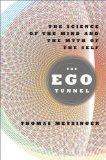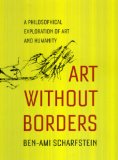March 16, 2009

Subjects of the World: Darwin’s Rhetoric and the Study of Agency in Nature by Paul Sheldon Davies (U of Chicago Press, 2009).
Synopsis from the publisher:
Being human while trying to scientifically study human nature confronts us with our most vexing problem. Efforts to explicate the human mind are thwarted by our cultural biases and entrenched infirmities; our first-person experiences as practical agents convince us that we have capacities beyond the reach of scientific explanation. What we need to move forward in our understanding of human agency, Paul Sheldon Davies argues, is a reform in the way we study ourselves and a long overdue break with traditional humanist thinking.
Davies locates a model for change in the rhetorical strategies employed by Charles Darwin in On the Origin of Species. Darwin worked hard to anticipate and diminish the anxieties and biases that his radically historical view of life was bound to provoke. Likewise, Davies draws from the history of science and contemporary psychology and neuroscience to build a framework for the study of human agency that identifies and diminishes outdated and limiting biases. The result is a heady, philosophically wide-ranging argument in favor of recognizing that humans are, like everything else, subjects of the natural world—an acknowledgement that may free us to see the world the way it actually is.
Comments (0)
- new books,philosophy of mind,self
March 12, 2009

The Oxford Handbook of Philosophy of Mind (Oxford University Press, 2009) is available, with “Look Inside” at Amazon for a preview of the Table of Contents and part of Jaegwon Kim’s article on “Mental Causation.”
Information from the publisher:
Product Description
The study of the mind has always been one of the main preoccupations of philosophers, and has been a booming area of research in recent decades, with remarkable advances in psychology and neuroscience. Oxford University Press now presents the most authoritative and comprehensive guide ever published to the philosophy of mind.
An outstanding international team of contributors offer 45 specially written critical surveys of a wide range of topics relating to the mind. The first two sections cover the place of the mind in the natural world: its ontological status, how it fits into the causal fabric of the universe, and the nature of consciousness. The third section focuses on the much-debated subjects of content and intentionality. The fourth section examines a variety of mental capacities, including memory, imagination, and emotion. The fifth section looks at epistemic issues, in particular regarding knowledge of one’s own and other minds. The volume concludes with a section on self, personhood, and agency.
The Oxford Handbook of Philosophy of Mind will be an invaluable resource for advanced students and scholars of philosophy, and also for researchers in neighboring disciplines seeking a high-level survey of the state of the art in this flourishing field.
Comments (2)
- new books,philosophy of mind
March 5, 2009
“Consciousness is the appearance of a world.”

That is the first line of the new book The Ego Tunnel: The Science of the Mind and the Myth of the Self by Thomas Metzinger (Basic Books, 2009).
Product Description
We’re used to thinking about the self as an independent entity, something that we either have or are. In The Ego Tunnel, philosopher Thomas Metzinger claims otherwise: No such thing as a self exists. The conscious self is the content of a model created by our brain—an internal image, but one we cannot experience as an image. Everything we experience is “a virtual self in a virtual reality.”
But if the self is not “real,” why and how did it evolve? How does the brain construct it? Do we still have souls, free will, personal autonomy, or moral accountability? In a time when the science of cognition is becoming as controversial as evolution, The Ego Tunnel provides a stunningly original take on the mystery of the mind.
Comments (1)
- consciousness,new books,philosophy of mind,self
February 28, 2009

Found via bookforum, Art Without Borders: A Philosophical Exploration of Art and Humanity by Ben-Ami Scharfstein (University of Chicago Press, 2009) has an excerpt available from the publisher.
Publisher’s synopsis:
People all over the world make art and take pleasure in it, and they have done so for millennia. But acknowledging that art is a universal part of human experience leads us to some big questions: Why does it exist? Why do we enjoy it? And how do the world’s different art traditions relate to art and to each other?
Art Without Borders is an extraordinary exploration of those questions, a profound and personal meditation on the human hunger for art and a dazzling synthesis of the whole range of inquiry into its significance. Esteemed thinker Ben-Ami Scharfstein’s encyclopedic erudition is here brought to bear on the full breadth of the world of art. He draws on neuroscience and psychology to understand the way we both perceive and conceive of art, including its resistance to verbal exposition. Through examples of work by Indian, Chinese, European, African, and Australian artists, Art Without Borders probes the distinction between accepting a tradition and defying it through innovation, which leads to a consideration of the notion of artistic genius. Continuing in this comparative vein, Scharfstein examines the mutual influence of European and non-European artists. Then, through a comprehensive evaluation of the world’s major art cultures, he shows how all of these individual traditions are gradually, but haltingly, conjoining into a single current of universal art. Finally, he concludes by looking at the ways empathy and intuition can allow members of one culture to appreciate the art of another.
Lucid, learned, and incomparably rich in thought and detail, Art Without Borders is a monumental accomplishment, on par with the artistic achievements Scharfstein writes about so lovingly in its pages.
Comments (2)
- culture,philosophy of mind






